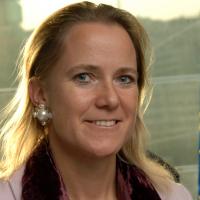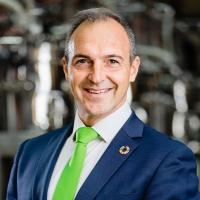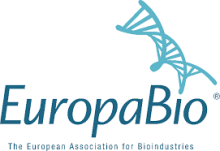A Science|Business closed-door roundtable, organised in partnership with EuropaBio (14:30 to 16:45 CET – followed by networking reception)
In recent years industrial biotechnology – also known as “white” biotech – has emerged as a high-value driver of industrial modernisation and the green transition. Through the innovative use of microorganisms and enzymes, it has transformative potential for manufacturing, waste use and the creation of sustainable products in sectors as varied as energy, textiles, plastics, paper, agriculture and water. While some core processes, such as fermentation technology, have been commercially deployed for around 50 years, the speed of scientific progress and solution development are accelerating exponentially. As such, it appears that the sector as a whole is truly poised to make the leap from “proof of concept” to mainstream application and adoption.
These take on greater importance when one considers other strategic priorities for the EU. First, it is clear that for Europe to achieve e.g. its 2030 benchmark for net-zero technology manufacturing in the Green Deal Industrial Plan (GDIP), it will need to leverage its full innovation capacity across sectors. Second, as global demand grows for sustainable solutions to climate, energy, biodiversity and food system crises, Europe is ideally positioned to take market leadership in various areas, given its research excellence, strong industrial base and array of innovation incubators. And third, the EU’s proposed Strategic Technologies for Europe Platform (STEP) has already identified biotechnologies among its key value chains to ensure future resilience, autonomy and competitiveness, while biotechnology has also been recognised as a critical technology for Europe in the years to come.
Yet a degree of skepticism remains – both in public and policy circles – about the risk/reward ratio of industrial biotechnologies and their wider value to society. One useful counterpoint is to consider the evolution of health-related biotechnology (often called “red” biotech). Having overcome similar resistance and concerns, this is now deployed at scale throughout various life science sectors and is acknowledged today as a key component in European health innovation.
As the EU prepares for its transition to a new Parliament and Commission, it is therefore an ideal moment to open a multistakeholder dialogue on how policy and regulatory innovations could increase the European added value of industrial biotech and biomanufacturing in the years to come – starting with the new biotech and biomanufacturing initiative announced by Ursula von der Leyen in her 2023 state-of-the-union address. Among some of the key questions for consideration:
- What should underpin a future EU roadmap for advancing industrial biotech and biomanufacturing across sectors, in line with other long-term objectives? What lessons can be learned from the success or failure of previous industrial growth strategies?
- Which policy and regulatory innovations could most effectively support companies and entrepreneurs seeking to commercialise novel technologies and solutions in Europe?
- In which ways can industrial biotech and biomanufacturing contribute most effectively to the GDIP, STEP and New European Innovation Agenda?
- How can Europe develop a more dynamic ecosystem of knowledge exchange and collaboration between key stakeholders?
- Are other actions needed at EU and national levels to build future industrial biotech capacity, such as infrastructure and skills?
On March 19, Science|Business, in partnership with EuropaBio, will convene a select group of senior figures and experts from across the industrial biotech spectrum to address these issues in a closed-door, invitation-only roundtable. Drawing in part on latest research and real-world applications, the meeting will identify recommendations to harness the full potential of industrial biotech and biomanufacturing, and to align its further development with the realisation of key EU policy goals.




























14:00 Coffee and registration
14:30 Welcome and opening of roundtable
• Yannick Proto, Head of Office, Association Occitanie Europe
• Simon Pickard, Moderator, Science|Business
14:35 Competitive advantage: How can industrial biotech and biomanufacturing transform Europe’s green industrial prospects?
First session dedicated to a policy-oriented debate around the potential pathways for scaling up industrial biotechnology in line with the objectives of the EU’s Green Deal Industrial Plan. Among the topics to be addressed: where should the Commission’s new biotech and biomanufacturing initiative focus first to accelerate development within the EU27? What lessons can be learned from past attempts to scale up critical tech sectors and boost their international competitiveness? And how to address the challenge of integrated policy making around industrial biotech and biomanufacturing, given their relevance to multiple sectors and EU instruments?
15:30 Coffee break
15:45 Supply and demand: Where should policy makers focus next to unlock Europe’s full innovation potential in industrial biotech?
Second session focused on an open discussion of the key enabling conditions and support mechanisms that could increase the market readiness and uptake of industrial biotech solutions across Europe. Among the topics to be addressed: which practical solutions would improve commercialisation prospects for innovators and entrepreneurs? Is the current IP regime a help or hindrance? Per the Belgian EUCO presidency agenda, could public procurement of industrial biotech innovation be a game changer? And which practical steps could ensure a sustainable talent and skills pipeline for the sector moving forward?
16:45 End of the meeting, followed by short networking reception
For more information, please contact: [email protected].



 A unique international forum for public research organisations and companies to connect their external engagement with strategic interests around their R&D system.
A unique international forum for public research organisations and companies to connect their external engagement with strategic interests around their R&D system.